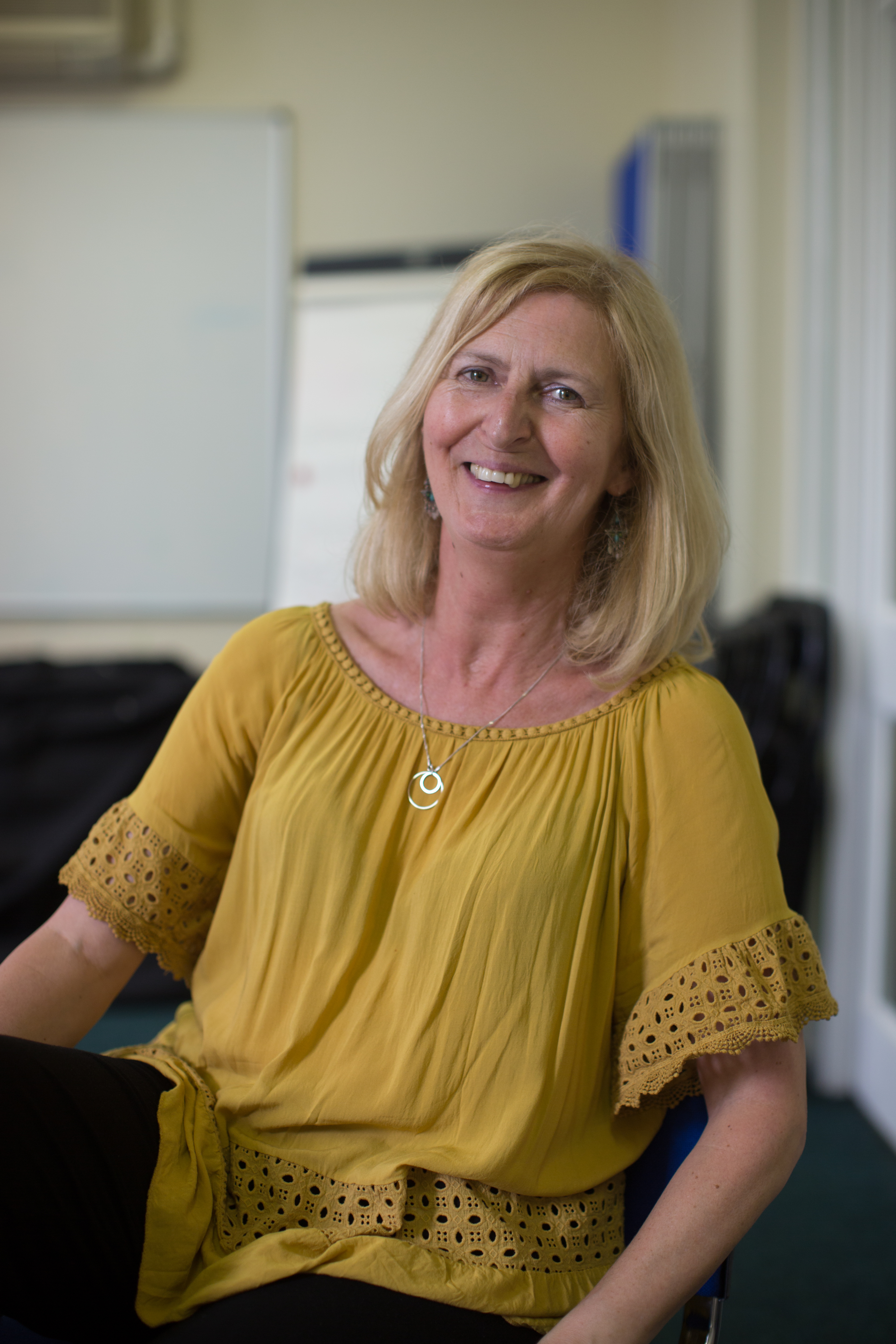March 2021
Public Accounts Committee calls on MoJ to implement TLEF’s Digital Justice Report recommendations
March 24, 2021
About the Digital Justice Report
On 2 October 2019, The Legal Education Foundation (TLEF) published ‘Digital Justice: HMCTS data strategy and delivering access to justice’ following a three month secondment by its Director of Research, Dr Natalie Byrom, into HMCTS as an expert adviser on open data. The Report set out a blueprint of 29 recommendations for evaluating the impact of the government’s court reform programme, and for ensuring the needs of all court users are understood and fully met in the move to digital justice. If the report is adopted in full, the UK could become a world leader in delivering digital justice for all. On 9 October 2020, HMCTS published a response to this report, accepting in principle the overwhelming majority of its recommendations.Independent Human Rights Act Review – Our Response
March 19, 2021
TLEF welcomes Hetan Shah to its board
March 19, 2021
 Hetan Shah has joined The Legal Education Foundation board as a Governor.
Hetan is Chief Executive of the British Academy, the UK’s National Academy for the humanities and social sciences. He also has a wide range of other roles and board positions including visiting professor at the Policy Institute, Kings College London, vice chair of the Ada Lovelace Institute, an independent body that works to ensure artificial intelligence and data are used for the public good, an advisor to Cambridge University’s Bennett Institute for Public Policy and up until the end of last year, Chair of the Friends Provident Foundation for five years.
Matthew Smerdon, TLEF CEO, says: ‘Hetan is such a terrific addition to the board. He brings to the foundation a wealth of experience across many fields. His appointment is especially timely as the foundation pursues its work promoting the use of evidence in the justice system through our Justice Lab initiative. His knowledge, networks and experience of working at the interface between research and policy will be especially helpful.’
Hetan says: “It is a privilege to join the Foundation and be part of its work to strengthen the justice system. It is more important than ever that public systems uphold the rule of law, and TLEF plays an important role in funding independent civil society organisations that can help this to happen. The pandemic has exposed and exacerbated inequalities in society, and I look forward to working with the Foundation to help ensure equality of access to justice.’
Hetan Shah has joined The Legal Education Foundation board as a Governor.
Hetan is Chief Executive of the British Academy, the UK’s National Academy for the humanities and social sciences. He also has a wide range of other roles and board positions including visiting professor at the Policy Institute, Kings College London, vice chair of the Ada Lovelace Institute, an independent body that works to ensure artificial intelligence and data are used for the public good, an advisor to Cambridge University’s Bennett Institute for Public Policy and up until the end of last year, Chair of the Friends Provident Foundation for five years.
Matthew Smerdon, TLEF CEO, says: ‘Hetan is such a terrific addition to the board. He brings to the foundation a wealth of experience across many fields. His appointment is especially timely as the foundation pursues its work promoting the use of evidence in the justice system through our Justice Lab initiative. His knowledge, networks and experience of working at the interface between research and policy will be especially helpful.’
Hetan says: “It is a privilege to join the Foundation and be part of its work to strengthen the justice system. It is more important than ever that public systems uphold the rule of law, and TLEF plays an important role in funding independent civil society organisations that can help this to happen. The pandemic has exposed and exacerbated inequalities in society, and I look forward to working with the Foundation to help ensure equality of access to justice.’
TLEF welcomes Rupen Shah to its board
March 12, 2021
 Rupen Shah has joined The Legal Education Foundation board as a Governor and will join TLEF’s Audit Committee.
Rupen qualified as a Chartered Accountant with KPMG and is currently the Chief Financial Officer of The Football Foundation and a Trustee of Women in Sport.
Matthew Smerdon, TLEF CEO, says: ‘We are delighted Rupen is joining us, bringing substantial expertise in charity and commercial finance, a knowledge of grant-making organisations, and a clear passion for social justice and tackling inequalities. He has a deep commitment to law and its power to solve everyday problems as well as extensive board experience and is going to bring a lot to the foundation.’
Rupen says: ”I am delighted to be joining the Board of TLEF. As a relatively young organisation, it’s remarkable to see its appetite to improve lives and transform communities through the power of legal education. I’m really looking forward to working with the Board and Executive Team to help TLEF achieve its ambitions and more!”
Rupen Shah has joined The Legal Education Foundation board as a Governor and will join TLEF’s Audit Committee.
Rupen qualified as a Chartered Accountant with KPMG and is currently the Chief Financial Officer of The Football Foundation and a Trustee of Women in Sport.
Matthew Smerdon, TLEF CEO, says: ‘We are delighted Rupen is joining us, bringing substantial expertise in charity and commercial finance, a knowledge of grant-making organisations, and a clear passion for social justice and tackling inequalities. He has a deep commitment to law and its power to solve everyday problems as well as extensive board experience and is going to bring a lot to the foundation.’
Rupen says: ”I am delighted to be joining the Board of TLEF. As a relatively young organisation, it’s remarkable to see its appetite to improve lives and transform communities through the power of legal education. I’m really looking forward to working with the Board and Executive Team to help TLEF achieve its ambitions and more!”
‘I thought, is this how it ends?’
March 10, 2021
Denise McDowell tells Fiona Bawdon that after the initial shock of the pandemic, it was GMIAU's long history of surviving different crises that helped it weather the unique challenges of Covid-19

Photo: Richard Gray
‘We have seen shocking decisions made at speed’
March 10, 2021
Access Social Care CEO Kari Gerstheimer tells Fiona Bawdon how the pandemic has made her organisation's work both more urgent and more difficult
 The launch of Access Social Care in April 2020, could hardly have been more timely. This charity, offering specialist social care legal advice, opened its (virtual) doors in the midst of the first wave of Covid-19, just when the entire country was focused on what was happening in care homes across the UK. The Corona Virus Act 2020 enabled local authorities to suspend many of the usual duties placed on them by the Care Act; and care providers of all kinds were facing unimaginable pressure.
Kari says: 'People were dying. Carers were desperately trying to keep people alive, while working in a fast-changing environment. New regulations were being issued at pace, which were having a dramatic impact on our clients' businesses.'
Although it was launched as an independent charity last year, Access Social Care started life in 2018 as a project at Mencap, the learning disability charity. It operates a membership model, where care providers pay a fee to access its expert legal support; another key part of its mandate is to build the case for a properly funded national social care scheme.
Kari says that although it is older people who attract most public and political attention in relation to social care provision (or its lack), 50% of the current government spend is on those of working age; and 70% of that 50% are learning disabled people. Even without Covid-19, the growth in demand for social care was outstripping spending, leading local authorities to ration provision unlawfully. 'Delay can be a very effective way of managing the budget,' says Kari.
Since the pandemic, significant additional challenges have been added to the social care mix.
'We've seen DNAR [do not attempt resuscitation] orders being placed on people with learning disabilities, without consulting them, or their family. We have seen new regulations being issued at pace, which have a dramatic impact on our clients' businesses. Without the usual checks and balances, we have seen shocking decisions made at speed, ' says Kari Gerstheimer.
For many advice organisations, the last year has meant an abrupt move away from face to face working towards remote service delivery. For Access Social Care, it meant 'the rest of the world has shifted to our way of working,' says Kari.
It was always the plan that ASC's team would work remotely, pandemic or no pandemic, but the impact of Covid-19 has been to transform what might have been seen an unusual model of working into the default.
Kari says: 'We are a very, very flexible employer, so the shift to a flexible working pattern has not been a challenge for us.' With funding provided by TLEF, via the Law Centres Network, ASC was equipped from the outset with the IT to enable remote working and advice delivery.
Even so, productivity has declined, not least as a result of the impact of schools closing on its mainly women staff team. 'Everyone knows you can't work with two children sitting on your lap,' says Kari. 'We can't keep expecting people to deliver at the same pace.'
ASC's pragmatic response was to go through every element of its work, and identify what could be halted or postponed. Kari says: 'That was really hard, personally. I work at pace. We had so much momentum and achieved so much in our first year, then to hit the brakes really goes against the grain.'
In January, ASC introduced a wide-ranging wellbeing programme offering everything from mindfulness to online social events to zumba; and it also operates a buddy system for staff.
Despite growing demand for its services and a successful first year, there are some potential clouds on the horizon.
Pro bono support and donations are a key part of its business model, but the corporate legal sector, along with everyone else, has been knocked off kilter by the pandemic. ASC has seen a 50% drop in referrals being picked up by its pro-bono barrister panel . 'Either because people are slammed, or they need to focus on paid work,' says Kari. And, the 'more simple, formulaic' social care cases that ASC used to funnel through to volunteer lawyers from city firms, as part of the firms' CSR commitment, have dried up. Kari worries that the money these big commercial firms currently donate to ASC in exchange for their lawyers having the opportunity to do social care work may also dry up. 'Our cases are more complex now because the environment is new. We anticipate that the cases will start to come through again soon but if we can't provide work which can be done by lawyers who aren't experts in social care, we will have to be inventive about how we maintain those relationships with firms in the future.'
The launch of Access Social Care in April 2020, could hardly have been more timely. This charity, offering specialist social care legal advice, opened its (virtual) doors in the midst of the first wave of Covid-19, just when the entire country was focused on what was happening in care homes across the UK. The Corona Virus Act 2020 enabled local authorities to suspend many of the usual duties placed on them by the Care Act; and care providers of all kinds were facing unimaginable pressure.
Kari says: 'People were dying. Carers were desperately trying to keep people alive, while working in a fast-changing environment. New regulations were being issued at pace, which were having a dramatic impact on our clients' businesses.'
Although it was launched as an independent charity last year, Access Social Care started life in 2018 as a project at Mencap, the learning disability charity. It operates a membership model, where care providers pay a fee to access its expert legal support; another key part of its mandate is to build the case for a properly funded national social care scheme.
Kari says that although it is older people who attract most public and political attention in relation to social care provision (or its lack), 50% of the current government spend is on those of working age; and 70% of that 50% are learning disabled people. Even without Covid-19, the growth in demand for social care was outstripping spending, leading local authorities to ration provision unlawfully. 'Delay can be a very effective way of managing the budget,' says Kari.
Since the pandemic, significant additional challenges have been added to the social care mix.
'We've seen DNAR [do not attempt resuscitation] orders being placed on people with learning disabilities, without consulting them, or their family. We have seen new regulations being issued at pace, which have a dramatic impact on our clients' businesses. Without the usual checks and balances, we have seen shocking decisions made at speed, ' says Kari Gerstheimer.
For many advice organisations, the last year has meant an abrupt move away from face to face working towards remote service delivery. For Access Social Care, it meant 'the rest of the world has shifted to our way of working,' says Kari.
It was always the plan that ASC's team would work remotely, pandemic or no pandemic, but the impact of Covid-19 has been to transform what might have been seen an unusual model of working into the default.
Kari says: 'We are a very, very flexible employer, so the shift to a flexible working pattern has not been a challenge for us.' With funding provided by TLEF, via the Law Centres Network, ASC was equipped from the outset with the IT to enable remote working and advice delivery.
Even so, productivity has declined, not least as a result of the impact of schools closing on its mainly women staff team. 'Everyone knows you can't work with two children sitting on your lap,' says Kari. 'We can't keep expecting people to deliver at the same pace.'
ASC's pragmatic response was to go through every element of its work, and identify what could be halted or postponed. Kari says: 'That was really hard, personally. I work at pace. We had so much momentum and achieved so much in our first year, then to hit the brakes really goes against the grain.'
In January, ASC introduced a wide-ranging wellbeing programme offering everything from mindfulness to online social events to zumba; and it also operates a buddy system for staff.
Despite growing demand for its services and a successful first year, there are some potential clouds on the horizon.
Pro bono support and donations are a key part of its business model, but the corporate legal sector, along with everyone else, has been knocked off kilter by the pandemic. ASC has seen a 50% drop in referrals being picked up by its pro-bono barrister panel . 'Either because people are slammed, or they need to focus on paid work,' says Kari. And, the 'more simple, formulaic' social care cases that ASC used to funnel through to volunteer lawyers from city firms, as part of the firms' CSR commitment, have dried up. Kari worries that the money these big commercial firms currently donate to ASC in exchange for their lawyers having the opportunity to do social care work may also dry up. 'Our cases are more complex now because the environment is new. We anticipate that the cases will start to come through again soon but if we can't provide work which can be done by lawyers who aren't experts in social care, we will have to be inventive about how we maintain those relationships with firms in the future.'
‘Covid-19 has exacerbated existing problems in the immigration sector’
March 2, 2021
Laura Redman tells Fiona Bawdon how the spirit of collaboration and video -conferencing has kept newly-launched Justice Together on course, despite the pandemic
 When a group of independent funders came together to create Justice Together, their aim was to transform the legal landscape for migrants in the UK. They couldn't have foreseen that, by the time Justice Together was launched in October 2020, the entire world would have been turned upside down by Covid-19.
The pandemic has made Justice Together's work even more urgent and important, having laid bare the long-standing inequality and injustice faced by those having to negotiate the Home Office's complex and unforgiving immigration bureaucracy.
Justice Together's acting head Laura Redman (head Hazel Williams is on maternity leave) stresses these problems long pre-dated the current health emergency: 'The pandemic exposed and exacerbated existing problems in the immigration sector.'
While the pandemic has given greater urgency to Justice Together's work, it could equally have blown the organisation's vision - that migrants 'can access justice fairly and equally and get on with their lives' - off course, so dramatic has covid-19's impact been on migrant communities and social justice organisations.
The fact that this hasn't happened is, fittingly, thanks to the same kind of collaborative spirit that led to Justice Together's creation in the first place. Just as a group of 11 funders (including TLEF) came together to create Justice Together, so a similar number of foundations and charities (also including TLEF) joined forces early in the pandemic to create the Community Justice Fund, to support existing social welfare legal advice organisations through the immediate crisis and beyond.
With significant extra resources being put into the sector, rather than fire-fighting, Justice Together has been able to stay the course and continue with its plans to transform access to justice in the UK immigration system.
Justice Together's first task when it launched last autumn was to embark on a consultation programme, to hear the widest range of views about what needs fixing in the immigration legal advice sector and what services are most needed. Due to the wonders of video conferencing, in just over a month, Justice Together was able to host roundtables in every region and devolved nation in the UK, attended by local advice providers and, community groups; consult national legal and campaigning organisations, like JCWI, Public Law Project, Rights of Women, and NACCOM; plus hold three focus groups with individual migrants. Laura tots them up: in all, she and her two colleagues spoke to over 200 people (153 at 15 roundtables, including 46 people with lived experience of the immigration system; 20 at three focus groups; 33 individual calls).
Having to do it all remotely meant 'we could have meetings in Northern Ireland and England on the same day,' she says. It also likely boosted the numbers who could attend, although - inevitably - some conversations will have lacked the depth and detail that only comes with face-to-face conversations.
The results of the consultation were used to shape Justice Together's strategy, which it launched December 2020. Some of the themes that emerged strongly were the lack of collaboration and networking between organisations providing legal and other support to migrants; and the need for better referral pathways to make it easier for clients to get advice (one adviser reported that it can take 15 phone calls to find somewhere to refer clients); high levels of vicarious trauma experienced by advisers who are repeatedly hearing harrowing accounts from clients; and problems with recruitment and retention. During the focus groups, young migrants spoke about their experiences of being given poor quality advice, and the lack of empathy they often felt from legal advisers: they described feeling 'disregarded and disbelieved'; as if they were 'just another number through the door'.
None of these deep-rooted issues will be easy to resolve, but Justice Together has 10 years in which to try. Its response to the consultation process has been to put collaboration and partnership working more firmly at the heart of its strategy. Grantees are 'grant partners'; and as well as providing funding, it aims to support them 'to build the power and influence of people with lived and learned experience of the immigration system and embed anti-racism strategies'. Importantly, says Laura, Justice Together is also urging applicants to be as honest and realistic as possible about what funding and support they need in order to do the work safely and well.
Justice Together funds not just advice provision but also influencing work, in recognition of the impact of the often hostile and ill-informed backdrop against which immigration policy is decided and implemented, and legal advisers and their clients have to operate.
Justice Together's first grant partners will be announced in late April or early May, with funds being rolled out in summer 2021.
When a group of independent funders came together to create Justice Together, their aim was to transform the legal landscape for migrants in the UK. They couldn't have foreseen that, by the time Justice Together was launched in October 2020, the entire world would have been turned upside down by Covid-19.
The pandemic has made Justice Together's work even more urgent and important, having laid bare the long-standing inequality and injustice faced by those having to negotiate the Home Office's complex and unforgiving immigration bureaucracy.
Justice Together's acting head Laura Redman (head Hazel Williams is on maternity leave) stresses these problems long pre-dated the current health emergency: 'The pandemic exposed and exacerbated existing problems in the immigration sector.'
While the pandemic has given greater urgency to Justice Together's work, it could equally have blown the organisation's vision - that migrants 'can access justice fairly and equally and get on with their lives' - off course, so dramatic has covid-19's impact been on migrant communities and social justice organisations.
The fact that this hasn't happened is, fittingly, thanks to the same kind of collaborative spirit that led to Justice Together's creation in the first place. Just as a group of 11 funders (including TLEF) came together to create Justice Together, so a similar number of foundations and charities (also including TLEF) joined forces early in the pandemic to create the Community Justice Fund, to support existing social welfare legal advice organisations through the immediate crisis and beyond.
With significant extra resources being put into the sector, rather than fire-fighting, Justice Together has been able to stay the course and continue with its plans to transform access to justice in the UK immigration system.
Justice Together's first task when it launched last autumn was to embark on a consultation programme, to hear the widest range of views about what needs fixing in the immigration legal advice sector and what services are most needed. Due to the wonders of video conferencing, in just over a month, Justice Together was able to host roundtables in every region and devolved nation in the UK, attended by local advice providers and, community groups; consult national legal and campaigning organisations, like JCWI, Public Law Project, Rights of Women, and NACCOM; plus hold three focus groups with individual migrants. Laura tots them up: in all, she and her two colleagues spoke to over 200 people (153 at 15 roundtables, including 46 people with lived experience of the immigration system; 20 at three focus groups; 33 individual calls).
Having to do it all remotely meant 'we could have meetings in Northern Ireland and England on the same day,' she says. It also likely boosted the numbers who could attend, although - inevitably - some conversations will have lacked the depth and detail that only comes with face-to-face conversations.
The results of the consultation were used to shape Justice Together's strategy, which it launched December 2020. Some of the themes that emerged strongly were the lack of collaboration and networking between organisations providing legal and other support to migrants; and the need for better referral pathways to make it easier for clients to get advice (one adviser reported that it can take 15 phone calls to find somewhere to refer clients); high levels of vicarious trauma experienced by advisers who are repeatedly hearing harrowing accounts from clients; and problems with recruitment and retention. During the focus groups, young migrants spoke about their experiences of being given poor quality advice, and the lack of empathy they often felt from legal advisers: they described feeling 'disregarded and disbelieved'; as if they were 'just another number through the door'.
None of these deep-rooted issues will be easy to resolve, but Justice Together has 10 years in which to try. Its response to the consultation process has been to put collaboration and partnership working more firmly at the heart of its strategy. Grantees are 'grant partners'; and as well as providing funding, it aims to support them 'to build the power and influence of people with lived and learned experience of the immigration system and embed anti-racism strategies'. Importantly, says Laura, Justice Together is also urging applicants to be as honest and realistic as possible about what funding and support they need in order to do the work safely and well.
Justice Together funds not just advice provision but also influencing work, in recognition of the impact of the often hostile and ill-informed backdrop against which immigration policy is decided and implemented, and legal advisers and their clients have to operate.
Justice Together's first grant partners will be announced in late April or early May, with funds being rolled out in summer 2021.
Recent Articles
Earlier Articles
News Archive
Search
